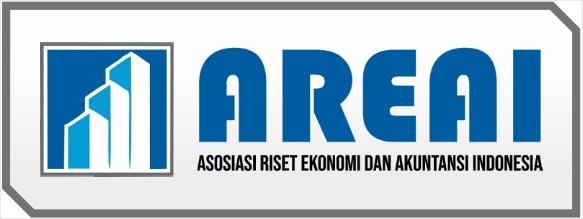Positive Negative Economic Impact of Covid-19 and Macroeconomic Policy on Industry, Business Sector in Indonesia
DOI:
https://doi.org/10.61194/economics.v3i3.403Keywords:
Covid 19, Economy, Industry, Business Sector, IndonesiaAbstract
This paper present the result of analysis that economic impact of Covid-19 on industrial prices/commodities, the business sector in Indonesia is not all negative, but there are also positives. WFH policy, social distancing, physical distancing, #dirumahaja, many people do not leave the house, negatively impact the inhibition of the distribution channel of goods/services. from upstream to downstream, from supplier to manufacturer, distributor to consumer. But there are certain sector companies that have a positive impact on their financial performance even though they are not as big as when normal, especially those based on virtual, pharmaceuticals and food. The methods used in this study are descriptive and expost facto. The resurt of this study in indonesian macroeconomic policies in the face of covid-19 economic stabilization, in the form of interest rate subsidies, tax rates, social assistance, direct cash assistance (BLT), low-cost staples. Lower banking rates, lower income tax rates, ease of provision of basic materials. Delays in paying credit installments (principal and interest), easier provision of capital for medium-small enterprises (SMEs), micro-empowerment capital, to increase banking capital, control prices, avoid inflation. Delays in paying credit installments (principal and interest), easier provision of capital for medium- small enterprises (SMEs), micro-empowerment capital, to increase banking capital, control prices, avoid inflation. The limitation this study needs many sampling and objective analysis for sectors affect by covid 19.
References
Akbar, A., Akbar, M., Nazir, M., Poulova, P., & Ray, S. (2021). Does working capital management influence operating and market risk of firms? Risks, 9(11). https://doi.org/10.3390/risks9110201 DOI: https://doi.org/10.3390/risks9110201
Belyaeva, Z., Rudawska, E. D., & Lopatkova, Y. (2020). Sustainable business model in food and beverage industry – a case of Western and Central and Eastern European countries. British Food Journal, 122(5), 1573–1592. https://doi.org/10.1108/BFJ-08-2019-0660 DOI: https://doi.org/10.1108/BFJ-08-2019-0660
Bhushan, P. (2014). An Empirical Analysis Of Inter Linkages Between Financial Attitudes, Financial Behaviour And Financial Knowledge Of Salaried Individuals. Indian Journal of Commerce & Management Studies, 1(3), 80–82.
Ciobanu, R., Șova, R.-A., & Popa, A. F. (2020). The Impact of FDI over Economic Growth and how COVID-19 Crisis Can Impact the CEE Economies. CECCAR Business Review. https://doi.org/10.37945/cbr.2020.04.08 DOI: https://doi.org/10.37945/cbr.2020.04.08
Coppola, P., & Fabiis, F. (2020). Evolution of mobility sector during and beyond Covid- 19: viewpoint of industries, consultancies and public transport companies. Tema-Journal of Land Use Mobility and Environment, 81–90.
Fatihudin, D. (2020). Dissecting Investment Reaps Economic Growth, book Deepublish Publisher CV Budi Utama Sleman Yogyakarta.
Ioan, C. (2020). The Labour Market Crisis in Romania Causes, Effects and Potential Solutions. Studies in Business and Economics. DOI: https://doi.org/10.2478/sbe-2020-0002
Iskrov, G., Greenberg, D., Yakimov, I., Cholakova, H., & Stefanov, R. (2019). What Is the Value of Innovative Pharmaceutical Therapies in Oncology and Hematology? A Willingness-to-Pay Study in Bulgaria. Value in Health Regional Issues, 19, 157–162. https://doi.org/10.1016/j.vhri.2019.03.005 DOI: https://doi.org/10.1016/j.vhri.2019.03.005
Murpin, J., Fatihudin, D., Mochklas, M., & Holisin, I. (2020). Banking Employee Performance During Pandemic Covid-19: Remuneration And Motivation. Journal of Xi’an University of Architecture & Technology.
Lythreatis, S., Mostafa, A. M. S., & Wang, X. (2019). Participative Leadership and Organizational Identification in SMEs in the MENA Region: Testing the Roles of CSR Perceptions and Pride in Membership. Journal of Business Ethics, 156(3), 635–650. https://doi.org/10.1007/s10551-017-3557-8 DOI: https://doi.org/10.1007/s10551-017-3557-8
Murinde, V., Rizopoulos, E., & Zachariadis, M. (2022). The impact of the FinTech revolution on the future of banking: Opportunities and risks. International Review of Financial Analysis. https://doi.org/10.1016/j.irfa.2022.102103 DOI: https://doi.org/10.1016/j.irfa.2022.102103
Namagembe, S. (2021). Enhancing environmentally friendly practices in SME agri-food upstream chains. International Journal of Quality and Reliability Management, 38(2), 505–527. https://doi.org/10.1108/IJQRM-10-2018-0289 DOI: https://doi.org/10.1108/IJQRM-10-2018-0289
Prinja, S., & Pandav, C. S. (2020). Economics of COVID-19: challenges and the way forward for health policy during and after the pandemic. Indian Journal of Public Health. https://doi.org/10.4103/ijph.IJPH_524_20 DOI: https://doi.org/10.4103/ijph.IJPH_524_20
Rubino, I., Coscia, C., & Curto, R. (2020). Identifying spatial relationships between built heritage resources and short-term rentals before the Covid-19 pandemic: Exploratory perspectives on sustainability issues. Sustainability (Switzerland. https://doi.org/10.3390/su12114533 DOI: https://doi.org/10.3390/su12114533
Stawicki, S. P., & Galwankar, S. C. (2020). Winning together: Novel coronavirus (COVID-19) infographic. Journal of Emergencies, Trauma and Shock, ttps://doi.org/10.4103/0974, 2700 281047. DOI: https://doi.org/10.4103/0974-2700.281047
Surya, B., Menne, F., Sabhan, H., Suriani, S., Abubakar, H., & Idris, M. (2021). Economic growth, increasing productivity of smes, and open innovation. Journal of Open Innovation: Technology, Market, and Complexity, 7(1), 1–37. https://doi.org/10.3390/joitmc7010020 DOI: https://doi.org/10.3390/joitmc7010020
Thorpe, J., Viney, K., Hensing, G., & Lönnroth, K. (2020). Income security during periods of ill health: A scoping review of policies, practice and coverage in low-income and middle- income countries. BMJ Global Health. https://doi.org/10.1136/bmjgh-2020-002425 DOI: https://doi.org/10.1136/bmjgh-2020-002425
Xiarewana, B., & Civelek, M. E. (2020). Effects Of Covid-19 On China And The World Economy: Birth Pains Of The Post-Digital Ecosystem. Journal of International Trade, Logistics and Law.
Yao, Y., & Tanaka, M. (2016). Price offers of pharmaceutical procurement in China: evidence from Guangdong province. European Journal of Health Economics, 17(5), 563–575. https://doi.org/10.1007/s10198-015-0700-2 DOI: https://doi.org/10.1007/s10198-015-0700-2
Zimon, G., & Zimon, D. (2020). Quality management systems and working capital smes in gpo—a case of Poland. www.bloombergwww.indonesia stock exchange, 10(4). https://doi.org/10.3390/admsci10040076 DOI: https://doi.org/10.3390/admsci10040076






